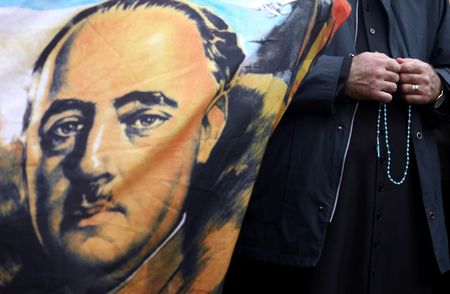FRANKFURT (Reuters) -Loan demand from euro zone firms rose last quarter despite a drag from geopolitical and trade tensions, and another increase is likely this quarter, the European Central Bank said on Tuesday based on a survey of the bloc’s biggest lenders.
Bank lending, the primary source of finance for businesses, has been slowly recovering for the past year as the ECB has cut interest rates quickly, and firms remained relatively upbeat about their prospects despite a trade standoff with the United States.
“Loan demand was supported by declining interest rates, but dampened by global uncertainty and trade tensions,” the ECB said based on a quarterly survey of 155 lenders.
The ECB is all but certain to keep interest rates unchanged on Thursday but will keep the door open to further easing later this year, and markets still expect one more rate cut before the bank is done lowering borrowing costs.
Credit standards – banks’ internal guidelines or loan approval criteria – were unchanged for firms last quarter, despite earlier expectations for a modest tightening, and lenders see little change in the current quarter.
While perceived risks related to the economic outlook continued to contribute to a tightening of credit standards, banks reported no specific additional tightening related to geopolitical uncertainty and trade tensions, the ECB added.
Credit standards tightened in commercial real estate, manufacturing, wholesale and retail trade and construction, while they eased slightly across most services.
Demand for housing loans continued to increase substantially last quarter and banks see a further rapid increase in the third quarter, the ECB added.
Credit standards for mortgages tightened slightly but banks see a modest easing in the current quarter, the ECB added.
In consumer credit, there was a more pronounced tightening of standards last quarter and banks see further tightening ahead.
(Reporting by Balazs Koranyi; Editing by Hugh Lawson)










